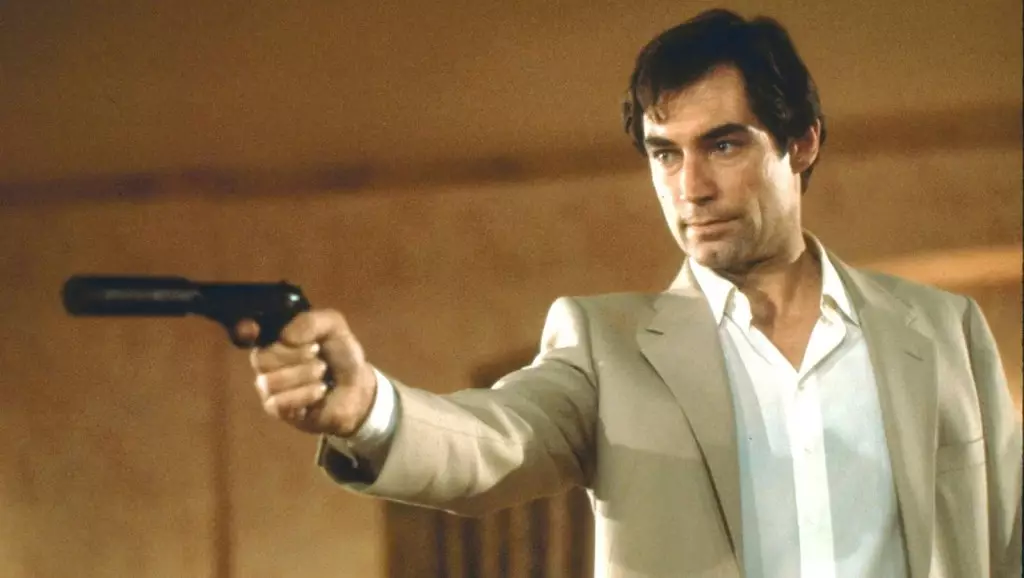Timothy Dalton, the distinguished actor who once played the iconic character of James Bond, has expressed deep concern regarding the recent acquisition of the James Bond franchise by Amazon. Dalton, who portrayed the legendary 007 in the films The Living Daylights and Licence to Kill, has articulated his sadness over the prospect of this quintessentially British character falling under the purview of an American corporation. In a candid interview with The Daily Telegraph, he reflected on the unique essence of James Bond as a British cultural icon, stating, “It is one of the few wonderful stories we’ve got in film that is British. The leading character is British. We can call it our own.”
Dalton’s lament highlights a fear that the creative direction of Bond may not uphold the original spirit and heritage that has been cultivated over decades. With Amazon MGM Studios now at the helm after their monumental $1 billion deal with franchise custodians Barbara Broccoli and Michael G. Wilson, many in the acting and filmmaking community are left to wonder what this means for the future of the beloved spy series.
Dalton’s commentary emphasizes the critical role that Barbara Broccoli has played in maintaining the integrity of the Bond franchise. He praised her as “one of the best women in the whole world” for her stewardship, asserting that her careful management has helped the series avoid becoming mere content churned out for streaming services. The actor pointed out that while everyone has an opinion about Bond, it is essential to maintain a clear vision and to delegate to those who understand the intricacies of what makes the franchise special. “If you keep it to people who know what they’re doing… then it will sharpen up and be good,” he said, reflecting a sentiment shared by many long-time fans of the series.
The concern is that Amazon may seek to overly commercialize Bond, diluting the character’s legacy in the process. Dalton’s apprehension is echoed by fans who believe the intrinsic value of the story lies in its rich history—a history that could be risked if the franchise becomes just another product in a vast content library.
As speculation runs rife about who will next don the legendary tuxedo, Dalton was adamant about the importance of casting a British actor to maintain the authenticity of the character. He argued, “that’s where it was born, that’s what the stories are.” This notion speaks volumes about the cultural impact that Bond has had on British cinema and society at large. The Bond films have long been perceived as a national treasure, and many fear that decisions made at a corporate level might overlook the significance of this aspect.
Names currently in the conversation for the next Bond include Aaron Taylor-Johnson, James Norton, and many others, including Tom Hardy and Idris Elba. These discussions are not merely about who would look good in a tuxedo; they reflect a deeper connection between the character, the narratives, and the cultural fabric of Britain. The casting decision will not just impact box office sales, but could also shape the character’s portrayal in a way that resonates—or conflicts—with public sentiment.
In a bid to reassuringly address fans’ concerns, Mike Hopkins, head of Prime Video and Amazon MGM Studios, acknowledged the legacy of Bond as a valuable component of cinematic history. “James Bond has been one of the most iconic characters in filmed entertainment,” he stated. However, the challenge for Amazon will be to translate that recognition into a revival of Bond that remains faithful to its roots. With such a rich heritage at stake, many are left considering how much of the franchise’s essence will survive under new management.
Dalton concluded with a necessary reminder that those involved in bringing Bond to life will work diligently to preserve its legacy. Yet, the question persists: Will the passion for the authenticity of a British icon withstand the tide of corporate influence and audience demand for fresh content? The future of James Bond may very well hinge on how these dynamics play out in an ever-changing entertainment landscape, where the balance between innovation and heritage is crucial. As fans anticipate what lies ahead, they hold tight to the hope that the spirit of 007 will prevail, regardless of the ownership changes.


Leave a Reply